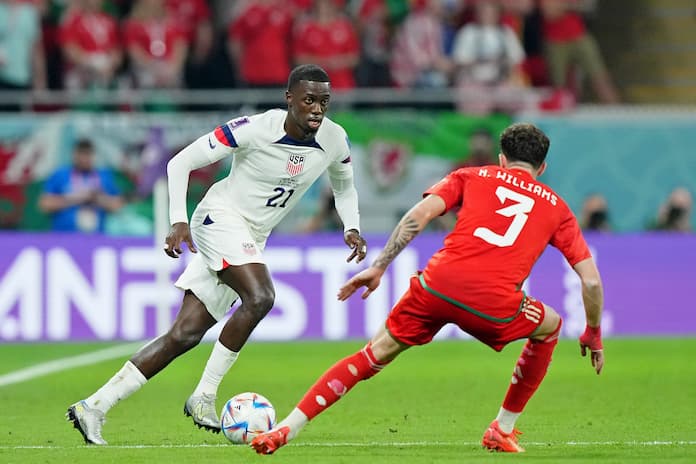A question on the SoccerLens Forum recently asked whether it would be harder for teams to win the European Football Championships or the World Cup. A friendly argument ensued:
The discussion ignored the number of games that the winner needs to play at each tournaments – 7 at World Cup as opposed to 6 at the Euros – or the rest period between games – 3 days for the Euros as opposed to 4 or 5 at the World Cup. It focused primarily on the type of opposition that is met in each of the two tournaments.
The main question was whether the diversity of nations: Cameroon, Saudi Arabia, South Korea and Australia provide a challenge as opposed to being an obstacle.
In 2002, Germany’s first game was against Saudi Arabia. It was a game which they won be a scoreline of eight goals to nil. In effect, it was a victory in hand for the Germans from minute 1 and they only needed another 3 points to progress from their group. As shown in recent European Championships, there are no such guaranteed victories for any of the nations. At Euro 2004, Latvia held Germany to a 0-0 draw – a result which cost the Germans qualification from the group stage.
But then there is the possibility of a nation outside Europe, for it is about these nations that we discussed, to pose serious problems to the heavyweights of football. Going back to 2002, Senegal shocked the world when they beat a Zidane-less France in the opening match. The African nation went on to prove that their victory over the reigning World Champions was no fluke as they made their way to the quarter-finals where they lost to Turkey after extra time.
Then, of course there is the ominous presence of Brazil and Argentina. The South American nations have been football powerhouses for nearly as long as football has existed. Between them, they have won 3 of the past 6 World Cups. But then Germany and Italy have represented Europe nearly as well. Between 1962 and 1994, there was not a single World Cup which did not feature either one of the two in the semi-finals. And, on top of that three different European nations have won three of the past four World Cups.
Judging from this you might come to the conclusion that European teams are generally the better than the rest, or at least that more European nations have good national teams.
But then, how do you explain the phenomenons of Greece four years ago and of Denmark in 1992? How did they manage to become the best in Europe? Was their success indicative of a lack of quality in European football? Not necessarily.
Such successes can seen every couple of years. Nearly every tournament, a team manages to make a surprise run to the quarter-finals or semi-finals. In 1998 it was Croatia, in 2000 Romania progressed from the group stage ahead of England and Germany, in 2002 Turkey and South Korea made it to the semi-finals. It just so happened that Greece and Denmark pushed their luck over the limit.
The fact that the European Championships have had more winners than the World Cup might again tilt the argument in favour of the latter tournament. But it could also work in favour of the former. For example, only European teams manage to stop the likes of Germany and Italy from steam-rolling through the summer.
So what do you think? Is it easier to win the European Championships or the World Cup?
Add Sportslens to your Google News Feed!






